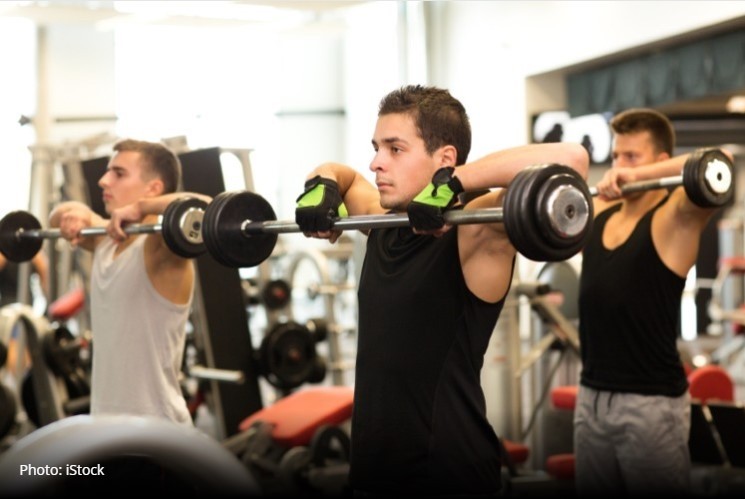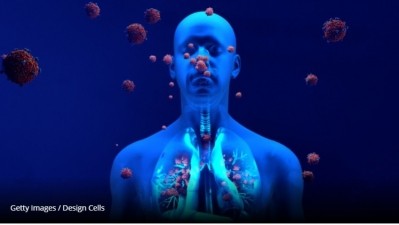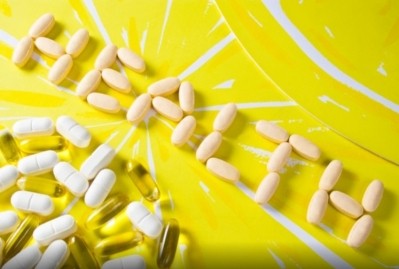DuPont review outlines ergogenic potential of probiotics in sports

Writing in MDPI, the research team highlights probiotics’ ability to reduce gastrointestinal (GI) and upper respiratory tract (URT) symptoms thus increasing healthy training days and races completed.
The team also consider probiotics as an indirect ergogenic aid citing an ability to boost training adaptations, attenuating physiological responses during post-exercise recovery periods, and improving mood and mental responses after intense exercise.
“Our gut bacteria play a key role in our overall health. It’s not surprising then, that it would also play a role in determining our physical ability,” explains lead author, Dr Maija Marttinen, scientist, DuPont Nutrition & Biosciences.
“What is so exciting about this field of research is that with the growing number of published studies, we are able to delve deeper into the existing evidence and evaluate exactly what is happening in terms of gut bacteria and athletic performance.”
So far, probiotic research has mainly focused on GI function and immune regulation. However, recent studies have targeted new research areas, such as metabolic and cognitive health.
Probiotic effects on gut health and immune system function may benefit endurance athletes, who train and perform at high intensities and often encounter physiological challenges associated with GI and immune health during and after a competition.
Therefore, probiotic supplementation may indirectly improve the performance of an athlete by increasing the number of healthy training and competition days and maybe even benefit stamina.
The benefits of probiotics for sports performance and training have been recognised, although the number of studies that have examined these issues remains limited.
Recently, the International Society of Sports Nutrition (ISSN) provided a position stand on probiotics, concluding that probiotics have strain-specific effects in athletes.
Akkermansia & Bacteroides
Dr Marttinen’s review begins to identify the bacterial species identified as possible enhancers of physical performance, referencing a number of studies taken from accumulating evidence.
A study involving Irish, male professional rugby players showed a higher gut bacterial richness in athletes compared with those in sedentary controls.
A higher proportion of bacteria from the Akkermansia genus was detected in rugby players while Bacteroides spp. were significantly less abundant in athletes than in controls with low BMI.
A similar study reported lower levels of Bacteroides spp. in competitive cyclists. Cyclists who trained over 11 hours per week had a higher relative abundance of Prevotella spp. than those who trained less often.
More evidence looked at marathon runners, in which the US-based team found a relative abundance of Veillonella spp. bacteria after the marathon, compared with the pre-exercise abundance.
“It is intriguing that [the studies] commonly identify genera such as Akkermansia and Prevotella at higher abundance in athletes and physically active subjects,” the review states.
“Observational studies that have compared trained athletes and physically active subjects with sedentary subjects have suggested long-term effects of exercise training on gut microbiota composition, wherein the diet plays an important role.
“Sedentary and physically active subjects differ not only in their exercise patterns but also in their dietary intake and body composition, which are both factors that are associated with the gut microbiota composition.”
Physical performance outcomes
In discussing probiotics’ possible role as an ergogenic aid to enhance physical performance, the team present evidence that probiotics should join this group.
However, the review points out that studies examining the effects of probiotics on physical performance focuses on mid- to long-term benefits, with supplementation periods varying from 2 weeks to 3 months.
Here, the most studied species are members of genera Lactobacillus (and associated genera) and Bifidobacterium; with notable benefits often strain-specific.
In looking at possible enhancement of physical performance, the team cites Lactiplantibacillus plantarum TWK10 as among the most studied probiotic strain in terms of physical performance outcomes.
Of particular note is a study that examined trained male runners’ use of a multi-strain probiotic (L. acidophilus, Lacticaseibacillus rhamnosus, Lacticaseibacillus casei, L. plantarum, Limosilactobacillus fermentum, Bifidobacterium lactis, B. breve, B. bifidum, and Streptococcus thermophilus) for four weeks.
In that time, the researchers noted an increase in time taken to fatigue on a treadmill running exercise performed in the heat compared with placebo, resulting in an average 16% longer running time [77].
However, no differences were observed in the severity of GI symptoms or GI permeability between the probiotic and placebo groups during exercise.
“The number of human clinical studies investigating the impacts of probiotics on physical performance remains low, and those that have been performed have examined limited exercise types and performance measures,” the researchers write.
“Clinical data have suggested that probiotics may improve the time to exhaustion during endurance exercise; however, these data are scarce and contradictory results exist.
“Studies have been conducted using a variety of probiotic strains that may differ in their efficacy. Further research remains necessary to determine the direct effects of probiotic supplementation on performance outcomes.”
“We are always looking to conduct, gather, and analyse all the evidence of the benefits of probiotic supplementation,” adds Dr Johanna Maukonen, global health & nutrition science R&D lead, DuPont Nutrition & Biosciences.
“It’s important to continue to push for more high-quality clinical studies to continue to uncover the roles gut microbiota and probiotics play in physical performance and the exact modes of actions behind their potential benefits.”
Source: MDPI
Published online: doi.org/10.3390/nu12102936
“Gut Microbiota, Probiotics and Physical Performance in Athletes and Physically Active Individuals.”
Authors: Maija Marttinen et al.
The microbiome and sports nutrition
The potential benefits of microbiome modulation by probiotics and prebiotics will be discussed in detail at this week’s IPA World Congress + Probiota Americas Digital Summit. For more information and to register, please click HERE.
















